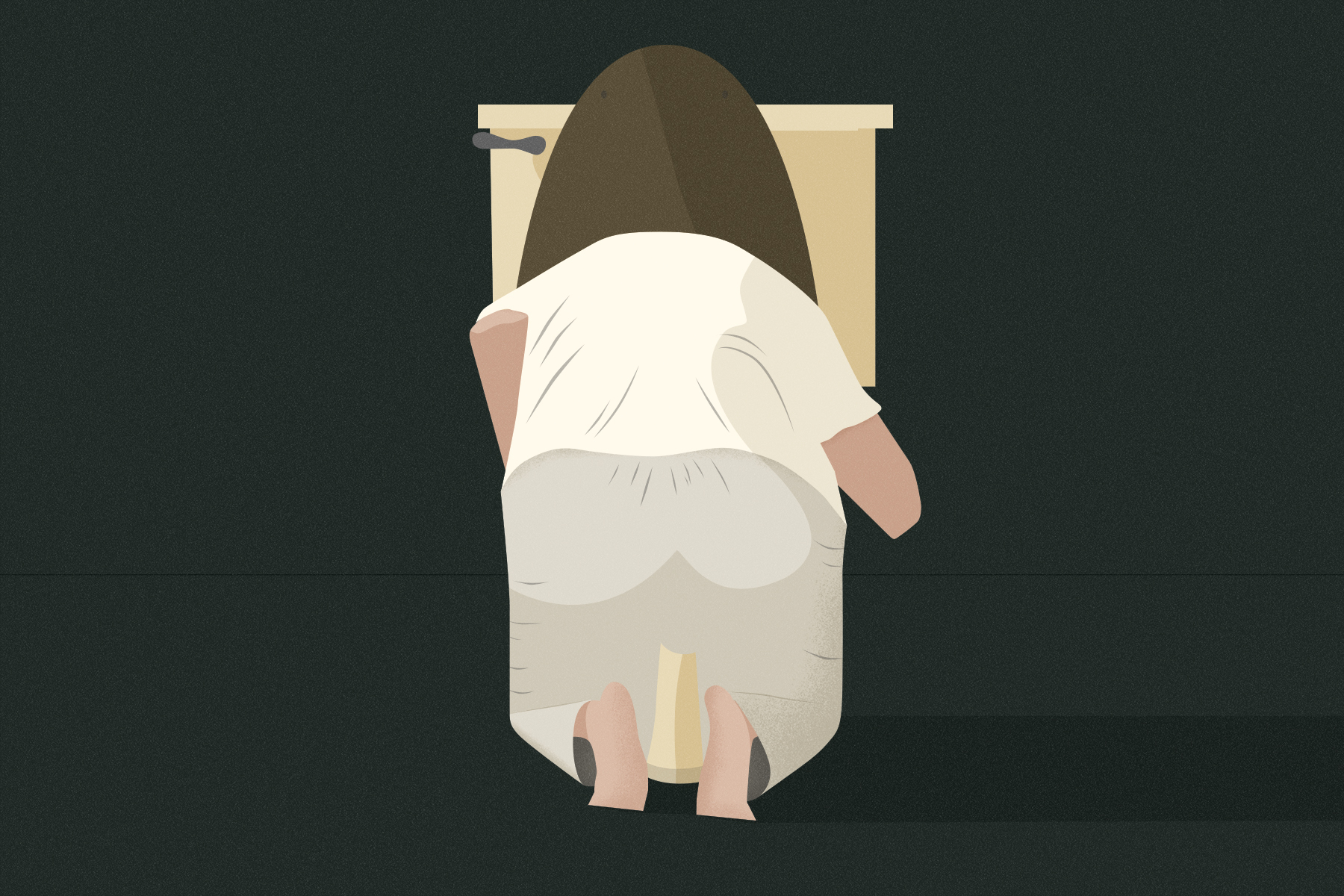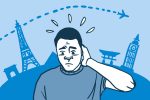Imagine that your friend is raving about his new favorite movie, and suggests that you watch it too. You Google its synopsis and decide it looks great. But as you continue your search, you discover that a large portion of the movie takes place at a yacht party. Though most people wouldn’t bat an eye at this, those with emetophobia — a deep fear of vomiting — quickly realize that watching a movie with the combination of boats and drinking will only lead to lots of puking scenes, and therefore, unwanted anxiety.
Aside from movies and TV shows, people affected by emetophobia often spend an extraneous amount of time worrying about potential situations in which someone around them could puke, even when those odds aren’t likely. Emetophobics, like myself, often find that this phobia burdens much of our daily lives, regardless of how irrational it may be.
If reading the words “vomit” or “puke” has made you squirm just as much as it has me while writing this article, there’s a good chance that you may experience symptoms of emetophobia.
What is it?
It can be unanimously concluded that vomit is disgusting. Emetophobia is more than finding puke to be unpleasant. It’s a deep, irrational alarm that goes off in the minds of those who have it.
When my middle school teacher told my class that we would be watching a video because she was feeling too nauseated to teach, I was instantly struck with a dreadful wave of panic. I quickly located the two exits near the back of the room as my mind raced and my heart pounded out of my chest. Throughout the class period, I shoved my fingers in my ears and clamped my eyes shut.
I knew I looked ridiculous and was being irrational. But no matter how many times I reminded myself of that, I couldn’t help but panic.
For emetophobics, the notion of seeing someone throw up, encountering throw-up or throwing up themselves can cause enough anxiety for them to avoid certain high-puke risk settings such as amusement parks or the community restroom in their dorm hall. Though the specific anxiety caused by emetophobia can vary from person to person, all emetophobics can agree that the concept, appearance or action of puke is illogically terrifying.
What causes it?
Like other phobias, emetophobia may have been caused by a traumatic incident in one’s life.
If you are similar to me, your emetophobia has been triggered by an unpleasant memory or event in your life that you specifically associate with vomit. While some people cannot remember the exact origin of their phobia, I can clearly recall the time my baby sister somehow spit up in my mouth when I was 5 years old. Though spit up isn’t as gross as vomit, my poor, toddler self couldn’t tell the difference and was traumatized for weeks.
The explicit memory of this incident has allowed me to understand why alarm bells ring in my head at the mention of vomit. Consequently, this has made it easier for me to cope with my anxiety when presented with a high-puke risk situation. Some emetophobics however, are not as fortunate as they may not recall the reason for their phobia.
According to “Healthline,” emetophobia, as well as many other phobias, could also be a consequence of genetics if a specific anxiety disorder has been passed down from prior generations.
What are some symptoms?
Throughout my school years, I never once used the restroom at school, nor did I visit the nurse’s office. If a classmate appeared ill, I avidly sought any and every excuse to leave the room until I felt I was safe again.
That being said, the symptoms of emetophobia look different for everyone.
Some may fear that someone will throw up in their presence, while others may have anxiety about getting sick themselves. Regardless, those with emetophobia will often take drastic measures to ensure they are not in a situation that will make them uncomfortable or scared.
If your anxiety specifically centers around the fear of puking or feeling nauseated, you may take extra precautions to ensure that food in your fridge hasn’t expired. Maybe you even toss out leftovers sooner than necessary, just to be safe. Perhaps you avoid eating at restaurants, drinking alcohol, long car trips or medications with nausea as a side effect.
Those with food aversions may associate specific foods with feeling sick, and jump through hoops to avoid eating or smelling them. For some, their list of foods may be longer than others.
However, many emetophobics might not be concerned about themselves vomiting at all. Some are strictly afraid of witnessing or hearing someone throw up and will avoid large crowds or spaces that are heavily populated with children.
Coping
The idea of entirely ridding oneself of a phobia can seem unrealistic. I doubt that there will ever come a time when I won’t squeeze my eyes shut during vomiting scenes, or calmly care for someone who is feeling nauseated.
While this may be the case, websites like “Does The Dog Die” allow people to search which shows or movies feature characters vomiting, as well as other categories that may be triggering or upsetting.
Though this is a helpful tool when it comes to avoiding vomit scenes, it won’t cure your puke-induced anxiety. In addition to seeking professional, therapeutic help, there are many means of coping in your everyday life.
Using logical reasoning and thinking about the facts is helpful when you feel as though your emetophobia is heavily influencing your behavior.
Taking deep breaths and reminding myself that witnessing someone throw up, or even throwing up myself, will not kill me has been a wonderful remedy when I feel as though I am powerless against my emetophobia.

















